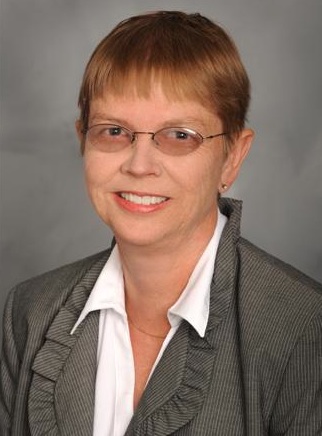by Anne Krueger
Grossmont-Cuyamaca Community College District
El Cajon, CA

Interviewing people is a key part of our jobs as community college communicators, whether it’s gathering information for a press release or writing a feature story for the campus newsletter. A great interview will provide the facts you’ll need to write a solid story.
In my 30-plus years as a newspaper reporter, I conducted thousands of interviews. But I didn’t really think deeply about it until I taught a journalism class on “The Art of the Interview.” It gave me the chance to break down the process of conducting an interview and helped me figure out what, really, makes for a great one.
Here are my top 10 tips:
Before conducting an interview, learn as much about the person as you can. Google the person, check his or her Facebook page, or check the online archives of your local newspaper. Talk to the individual’s friends and colleagues. You’ll be able to ask better questions if you can walk into the interview knowing some areas to explore.
2) Be prepared.
Think about where you want to conduct the interview. A noisy student center might make it difficult to hear. If you plan to record the interview, make sure your recorder is fully charged. (I’ve made that mistake more than once!) List some topics in your notebook that you want to be sure to cover. Be sure to bring any documents you want to discuss.
3) Be confident, friendly and open.
Let your preparation and planning show in your demeanor. Your confidence should show through from the moment the interview begins. Be friendly and open, but take the lead in the conversation. Make your subjects feel like you are someone to be trusted to tell their story accurately and fairly.
4) Use your ears more than your mouth.
An interview is not a conversation. You want to make interviewees feel comfortable, but you’re there to learn about them, not to share your life story. Ask your questions and let them talk. Don’t interrupt, unless they go off on a tangent and need to be brought back to the topic at hand. Allow for some silences, perhaps as you’re catching up on your note-taking. People abhor silence, and they’ll start telling you more to fill the void.
5) Details, details.
As you’re interviewing, take note of what people are wearing, their appearance, or any other details that will make your story richer. If you interview them in their home or office, make a point of observing what’s around them. Ask them about paintings or knick-knacks. You might learn something about them you never would have thought to ask.
6) Ask open-ended questions.
You’ll get better quotes if you ask questions that require explanations rather than simply “yes” or “no.” If you do ask a yes or no question, follow it up. Q: “Did you like drama class?” A: “Yes.” Q: “Why did you like it?” A: “I loved the experience of becoming another character, and I found it was a great way to express myself.” And so on…
7) Get a timetable.
Go through the person’s life story chronologically. You’ll understand that person better, and a timetable will help you spot gaps in the chronology.
8) Don’t be ashamed to be ignorant.
The world of academia is filled with acronyms and jargon. Don’t be embarrassed to ask your subjects to go back and explain more fully what they’re talking about. Sometimes I’ve asked subjects to explain a complicated topic to me as if I were a fifth-grader. It’s better to spend a few extra minutes during an interview than having to call back and ask them to go through it again.
9) Slow down!
When people reach an important point, slow them down and ask them to describe the scene. What were they wearing at the time, what were they doing, or what was the weather like? Have them relive it with you.
10) End with the open-ended question.
At the end of the interview ask, “Is there anything else you’d like to tell me?” You might learn something new.
Anne Krueger is communications and public information director for the Grossmont-Cuyamaca Community College District in El Cajon, California. Before joining the college district in 2010, she worked for more than 30 years as a newspaper reporter in San Diego, California, and West Palm Beach, Florida.


STAY CONNECTED